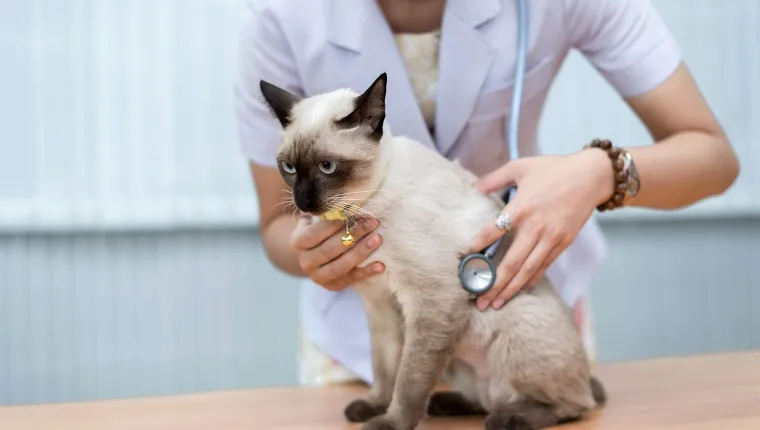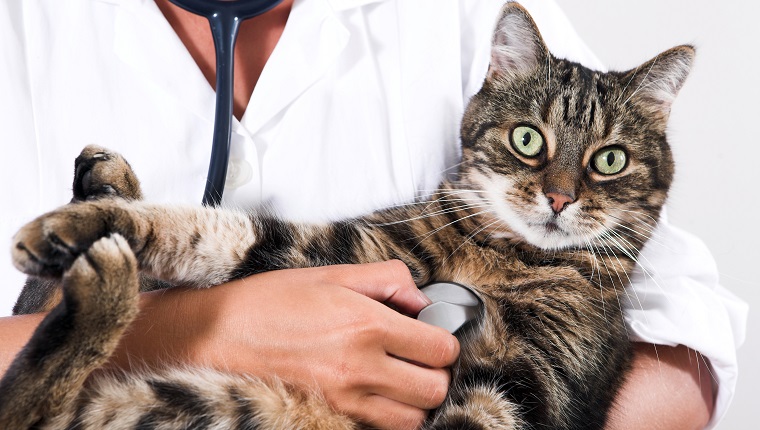Sinus bradycardia in cats is a condition that involves an abnormal heart rhythm. It happens when the electrical impulses that prompt a cat’s heart to beat work at a slower rate.
The condition is often the result of an underlying issue, and in some cases, it can cause a cat to loose consciousness. However, in other cases, it can come about due to athletic conditioning, much like how human athletes often have lower-than-usual resting heart rates.
If you see signs that your cat might be suffering from a heart condition, then you must consult your veterinarian for a proper diagnosis and course of treatment. Here’s what you should know about the symptoms, causes, and treatments of sinus bradycardia in cats.
Symptoms Of Sinus Bradycardia In Cats
Sinus bradycardia in cats can sometimes produce no visible symptoms. This is especially so if your cat is very active and athletic.
Some of the most common symptoms that do appear include:
- Avoiding exercise and activity
- Breathing very slowly
- Losing consciousness
- Acting lethargic
- Seizures
A cat is considered to have contracted a case of sinus bradycardia if their heart rate falls below 120 beats per minute.
Causes Of Sinus Bradycardia In Cats

Sinus bradycardia in cats is a condition that can result from a number of issues. Some of the most common causes include:
- Hypothermia
- Gastrointestinal issues
- Being sedated too much
- Respiratory issues
- Being intubated
It’s important to remember that sometimes the cause can be athletic conditioning. In these cases, a lower heartrate may not be cause for concern.
Treatments For Sinus Bradycardia In Cats
If you start to think that your cat might be developing sinus bradycardia, your veterinarian will want to carry out a physical examination and order blood and urine tests. They will also ask about your cat’s medical history, as well as their daily activities and level of exercise.
Vets may use an electrocardiogram, also known as an EKG, to monitor heart muscles.
Treatment depends on the underlying condition that is causing the issue. In some cases, cats may not need treatment, like when an athletic cat doesn’t show any symptoms. In other cases, a cat may need hospitalization and treatment as if they are in critical condition.
Has your cat ever showed signs of sinus bradycardia? Was it because they’re athletic, or was it due to a medical condition? Tell us all about it in the comments below.









